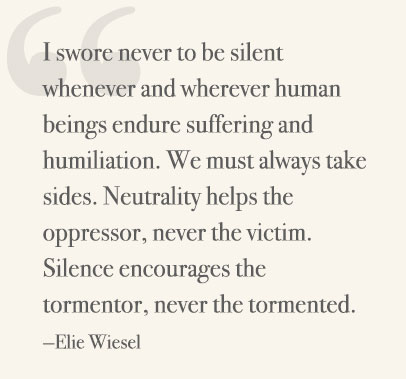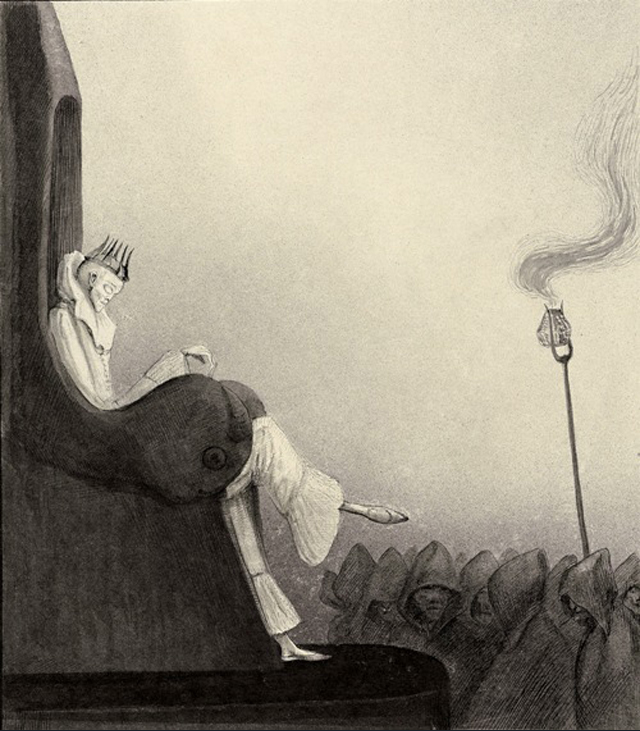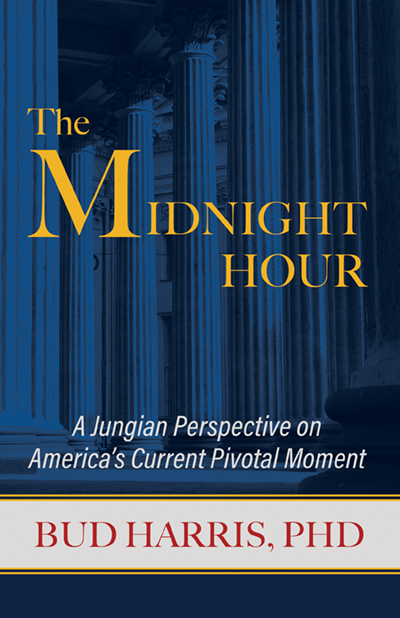Dear Reader,
The following is a continuation of my blog series based on my book The Midnight Hour: A Jungian Perspective on America’s Pivotal Moment. If you are just now picking up on the series, you might start with the Introduction: Welcome to the Challenges of Change.
I hope that it will help you, as writing it has helped me, to find a candle to contribute to your light.
Whether you agree with me or not, I hope my work helps you clarify your own position, both within and to the chaotic times surrounding us. Above all, I hope it helps you create a new vision of the future and a new hope that draws you to commit to it.
Bud Harris
Asheville, North Carolina
The Midnight Hour:
A Jungian Perspective on America’s Pivotal Moment
Chapter 11: 2008: Betrayal as Another Wake-Up Call

During the 9-11 commission hearings, the former national coordinator for anti-terrorism, Richard Clarke, took the stand and made the most amazing public statement I have ever seen or heard from a government official. He began his interview with an apology to the victims of 9-11 and their loved ones. He then said, “Your government failed you, those entrusted with your protection failed you, and I failed you.” This scene was an expression of character like none I have ever seen anywhere or anytime in our government.
I don’t in any way equate 9-11 with the economic crash in 2008, but just as our entire nation was affected by the 9-11 attacks, our whole nation was victimized by the 2008 crash. Countless people sank into a sea of poverty, lost their jobs, declared bankruptcy, and committed suicide. A Wall Street Journal article on January 27, 2018, pointed out that about 2.5 million homes are still worth less than their mortgage debt—ten years later. My children and their families felt a kind of fear and dread they had never known before, although I had. No one in the government that was supposed to have protected us took responsibility for this tragedy the way Richard Clarke had done for 9-11. No one in our government apologized for letting greed become more important than your and my welfare and that of other citizens—their constituents. No one in our government apologized for having repealed the Glass-Steagall Act, which had been the firewall protecting us from predatory financial institutions since the Great Depression. And no one in the Justice Department took action to prosecute the people who had robbed me and my family of the security we had worked so hard to attain to support our later years. I was punched in the stomach and brought to my knees, and I wasn’t anywhere near the only one.
If my government couldn’t protect me, I wish it would have at least pursued justice. I would have liked to have seen those reckless, greedy bastards who pocketed billions punched in the gut themselves by our Justice Department. I would have liked to have seen them go to jail, like people in the savings and loan scandals did in the early 1990s. The very people in our government who should have been protecting us from greedy predators were and are facilitating them. Instead of making high-paid speeches on Wall Street, I would have liked to have heard 2016 Democratic presidential candidate Hillary Clinton chanting, “Lock ’em up! Lock ’em up!” in her campaign rallies. This whole situation is so damn painful! I am full of rage and pain and heartbreak by our indifference that has allowed so many members of Congress to easily sell us out to stay in office.
* * * *
I have lived on a slippery slope financially more than once in my life. But I was taking financial risks for purposes I valued—medical treatments for my family members, starting a new business, and responding to a call to a new vocation. During these times I was confident in what I was doing and had faith that if I stumbled or fell, I could pick myself up again, which I had to do several times. This time, in 2008 and 2009, it was different. I was blindsided, a bottom dropped out from under me that I hadn’t even realized was there.
We remodeled our home in 2007 to be a place where we could live for a long time. It was spacious enough for our children and their families to be able to visit with us on holidays and special occasions. When we finished remodeling, it appraised for a high enough value to reassure us that we had some bedrock financial security as we faced the future. In 2008, I turned seventy-one years old and was still working, as I am now. In one fell swoop, we lost the foundation of financial security we had in our home and more than I like to think about in our retirement funds. Everyone we knew was seized by a state of shock and fear. Within a couple of years, we realized we needed to bite the bullet, dump our beautiful home at a huge loss, and drastically downsize. We did it. We are tough, creative, and courageous. Plus, we made this drastic change in our lives while I was recovering from surgery for prostate cancer.
I have a great deal of respect for myself, for my wife, and for others who hung in there, endured, cared for their loved ones, and quietly dealt with their fear and grief. I also have so much compassion for all who had hopes and dreams smashed, who lost everything, and who faced poverty and serious illnesses as their finances collapsed. Almost nine million people lost their jobs, five million families lost their homes, and the unemployment rate doubled to around 10 percent. And I damn well hate the people who brought on this debacle along with the self-serving politicians who forgot they actually have a responsibility to protect the people who elected them.
Bitterness wells up in my throat when I remember that our two main candidates for president in 2016 both sit snugly in the top one percent of wealth; that they are clearly connected with the powers on Wall Street. I am amazed at how easily they thought their rhetoric and bombastic statements could deceive us. I make these comments with pain and anguish because I believe the Democratic candidate has tried to do good for children, women, health care, and the world many times, but I have to ask, “What in the world, Madame Secretary, could you have believed I would think when you took a $600,000 check for one of four speeches on Wall Street (of which you didn’t release the contents) and then tried to appear like you had my interests at heart in your campaign speeches? On top of that, I can’t help but wonder if you are so out of touch that it didn’t occur to you that it would take a single mother supporting a couple of kids as a waitress almost thirty years to make that much money. Come on!” The other candidate took the Gordon Gekko approach, which charismatically suggests, at least to some people, that greed, self-interest, and uncontrolled power are good.
Another realization that hit me like a punch in the stomach was the recognition that when the bottom line in a woman’s life is winning power, money, and prestige at any cost, she is actually a member of the predatory patriarchy. She has adopted the same value structure that is destroying the humanity in our society, no matter what kind of feminist persona she is wearing.
Being a one-percenter, however, doesn’t make you evil. The politicians that inspire me the most, Theodore Roosevelt, Franklin Roosevelt, Eleanor Roosevelt, and Robert Kennedy, for example, were one-percenters but lived by the values of wanting to lift our lives to higher purposes and meanings. Other heroes of mine such as Harry S. Truman, George Marshall, Martin Luther King, Jr., and even Mother Teresa knew very well how to have, create, and use power and not be corrupted by the pursuit of it.
In his book The Power Paradox: How We Gain and Lose Influence, Dacher Keltner, PhD, shares with us his research on power. He says when people who are seeking power or who have power lose focus on others it “can lead to empathy deficits and the loss of compassion, impulsive and unethical action, and rude and uncivilized behavior.” He notes that someone feeling powerful and going in a negative direction can lead to assumptions of entitlement and being above the law. But not all wealthy or powerful people are like this. Wealth and power can also lead to an increased desire to serve the good of others and a deepened sense of empathy and compassion, as embodied by the people I’ve named.
“Indifference to me is the epitome of evil.”

Where in the world was my brain, my public awareness, as we were laying the political groundwork leading up to 2008? The quotation I am using as the title of this section comes from the Nobel Prize winner and former Nazi concentration camp victim Elie Wiesel. It came to my mind while I was reading a passage in Joe Biden’s book Promise Me, Dad. He was describing taking his granddaughter to tour Dachau, the former Nazi concentration camp. I have toured Dachau myself, and it is a picture of hell. Former Vice-President Biden writes that his father reminded him that “the idea that the German people did not know this was happening defied logic. Humans are capable of incredible cruelty, our father wanted me, my sister, and my brothers to understand. And just as dangerous, he made us see, human beings are also capable of looking the other way and remaining silent when awful things are happening all around them.”
Well, guess what, Mr. Vice President, haven’t most of our politicians, too many of our business leaders, our medical and psychological professional societies, most of us—and I, myself—been living in denial of the hell too many of our fellow citizens are experiencing? Everyone in the bubble of indifference is helping to make denial a national psychological defense mechanism. It predominates in liberal circles that have been supported by our obsessive dogma of positive thinking. Denial is an attempt to screen out difficult and unpleasant realities by ignoring them or refusing to acknowledge them.
A large portion of our society that tends to be conservative goes further and uses repression as a psychological defense mechanism. In repression, threatening or painful thoughts, events, and realities are excluded from our awareness. Like all defense mechanisms, these two are used to protect us from anxiety, from recognizing the fear we are living in. They also protect us from facing the encapsulated way we are living, which prevents us finding the courage to confront our true reality and its unpleasant demand to become more self-responsible in our actions. Former Vice President Biden ends his passage by saying, “You can’t remain silent. Silence is complicity.” I agree, and that is why I am compelled to write this book that is challenging me every minute while I am engaged with it.
* * * *
While too many of us were living in denial and buying the illusion that things were getting better, they were actually getting worse for too many people and were, in fact, getting much worse for all of us, more than we realized. Our denial equals indifference, and our failure to face reality is casting a dark shadow over our national power structure and our lifestyles. Indifference blurs the lines between good and evil. (Elie Wiesel gives a great talk on indifference. You can view it on YouTube.) Indifference makes it easier to look away from victims, our neighbors, and reduces them to abstractions, statistics, and political groups. I’m sick of hearing Democrats say, for example, that they lost the 2016 election because they failed to reach out to blue-collar workers. I just want to scream, “Son of a bitch, you didn’t reach out to me, you didn’t inspire me, and I’m not a blue-collar worker!”
Maybe, just maybe, so-called blue-collar workers and I have a deeper set of concerns and values in common than you realize. Maybe they include the values of the heart. Maybe they include wanting a government that is on our side—that is of the people, by the people, and for the people. Maybe they include standing for the fundamental values of democracy, liberty, equality, and opportunity for all of us. And I would like to mention: quit trying to assume or convince me I have these things, because the punch in the gut I received in 2008 proved to me that I don’t. Indifference to suffering makes us inhuman. Indifference to the victims of 2008 makes us a friend of the enemies of democracy. In the years leading up to 2008, my humanity was denied by my government. My citizenship was denied by the perpetrators of that disaster, but also by my president, my senators, my representatives, our political parties, and the new presidential candidates.
Elie Wiesel says that “it is remembering that will save humanity.” He says also that when the American soldiers liberated him from the concentration camp, he could see the shock, the horror, and the compassion in their eyes. He said that he was comforted because he knew they would never forget. We must never forget that we were devastatingly betrayed in 2008 and got a shocking wake-up call in 2016 because we have forgotten that in this country, this democracy, we are meant to be self-aware, self-responsible citizens and not subjects of a power structure. And we must remember that those who seek power and money for their own sake are still directing our lives. Once again, I have to ask:
- Wouldn’t it be better if we remember that we do have power? Communication, protest, and voting are power!
- And wouldn’t it be better if we remember that the forces that want to undermine a government of the people, by the people, and for the people thrive on us believing that we don’t have enough power, that we can’t make a difference so there is no reason to act?
 The above is Chapter 11 of my book The Midnight Hour: A Jungian Perspective on America’s Current Pivotal Moment.
The above is Chapter 11 of my book The Midnight Hour: A Jungian Perspective on America’s Current Pivotal Moment.
BUY FROM YOUR LOCAL INDEPENDENT BOOKSTORE
Book Excerpts and Resources
, 2021, America, being human, citizenship, Elder Wisdom, fear, hope, living authentically, responsibility
Please stay positive in your comments. If your comment is rude it will get deleted. If it is critical please make it constructive. If you are constantly negative or a general ass, troll or baiter you will get banned. The definition of terms is left solely up to us.
Leave a Reply